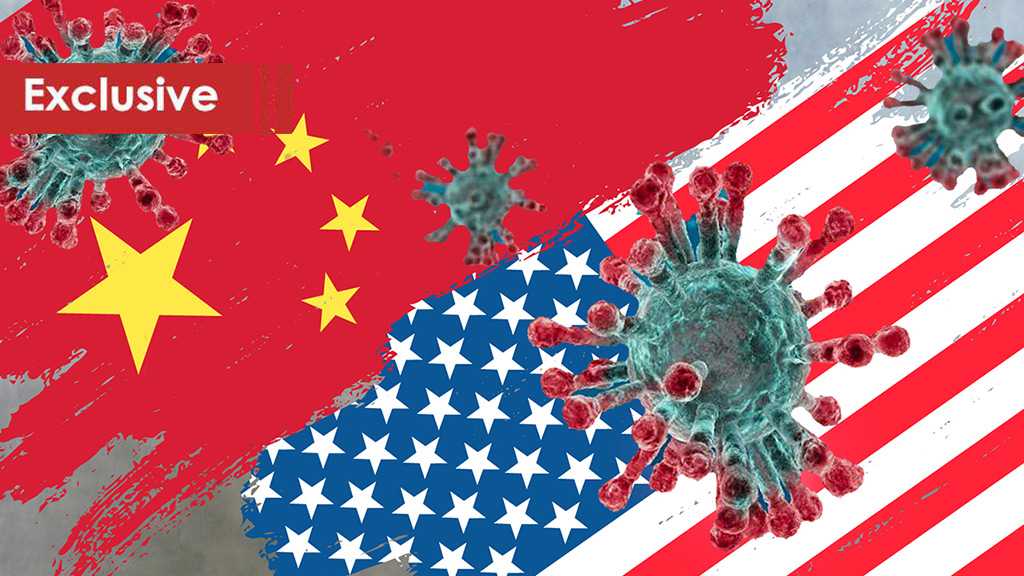
How The Rising Dragon Outperformed The Wounded Tiger

By Darko Lazar
In layman’s terms, COVID-19 is just a tiny poison. But for most of us, the virus has biologically cunning attributes and enigmatic abilities that have perplexed the medical community. And that’s not all – the coronavirus also happens to be politically savvy.
Few politicians are more aware of this than the current occupant of the White House. For Donald Trump, 2020 was shaping up to be a good year in January.
The US economy was doing exceptionally well, his administration clinched a number of bilateral agreements with favorable terms, and his isolationist rhetoric was still resonating with his base ahead of the presidential election in November. But in March, everything changed.
The nearly four-year-long Trump presidency has been essentially nullified. Its so-called domestic achievements are no longer relevant.
What looked like an easy win against a Democratic presidential candidate suffering from dementia is now anything but.
A series of missteps by the White House and government agencies like the Centers for Disease Control [CDC] have further undermined public confidence in American leadership.
And as the US becomes the epicenter of the pandemic with over 20,000 deaths, both the public and private sectors have proven equally ill-prepared to deal with the crisis.
Beyond US borders, the virus has become the face of waning American power – at least for those who couldn’t see it already. Struggling to avoid an internal cataclysm, the US is turning inwards, while China is skillfully filling the vacuum.
War of ideology
Aside from offering considerable financial assistance to numerous states, China is also utilizing its status as the ‘world’s factory’. The Chinese are manufacturing and shipping face masks, coronavirus tests and other desperately needed medical gear en masse.
Of course, the history of superpowers teaches us that throwing some money and aid around is often useless when trying to achieve long-term geostrategic objectives.
But Beijing’s response to the pandemic is swaying foreign governments in another very unique fashion. For the first time in over four decades, the Chinese have been displaying the very clear advantages of their political system.
Beijing is now demonstrating to the whole world the incredible effectiveness of its version of socialism. And the Chinese star is looking increasingly bright at a time when the western world is inching towards total collapse.
The difference between an effective China and an impotent west will become more evident as the pandemic drags on and the death toll rises.
Today, that death toll is six times higher in the US than in China, despite the fact that the latter has a far larger population.
Even when the dust finally settles, the matter of morally bankrupt capitalist governments that did nothing to protect the lives of ordinary citizens will return to the forefront and continue to haunt western elites.
Meanwhile, Beijing’s seemingly quick victory over the virus, coupled with its generous foreign assistance, will pump fresh blood into its plan to create a network of global alliances, stretching from Pakistan to Brazil.
There is nothing to suggest that the political establishment in Washington will learn any lessons from all this. There will be no change in tone, no new strategy and no compromises.
Medical terrorism
The Trump administration has already articulated its global response to the pandemic. In short, it blames everything on China.
The U.S. president labeled COVID-19 as the “Chinese virus”, and the American media is gradually rolling out the narrative about Beijing’s negligence and alleged role in spreading the disease.
This preemptive move is likely a prelude to more tariffs, unilateral sanctions and blockades.
Western governments demonstrated their chosen foreign policy course at the start of April when they shot down a Russian-drafted UN General Assembly resolution on the coronavirus.
The Russians called for global solidarity in the fight against COVID-19 and demanded countries refrain from imposing “any unilateral coercive measures”.
Although the resolution did not name any states, it was clearly referring to unilateral US sanctions against Iran, Russia, China, Venezuela and Cuba.
In some of these countries, the embargo is undermining the ability of governments to buy and receive desperately needed medical equipment to fight the very same virus that continues to kill tens of thousands in the west.
A few days after the vote, Iranian President Hassan Rouhani accused Washington of waging “medical terrorism” against his country, and warned that “this will linger as a historical disgrace for the American ruling elites.”
The Americans were joined by the UK and the European Union in voting down the Russian resolution. London dismissed the draft as an effort by some countries to take “advantage of COVID to drive their own national agenda.”
This is the same government that wanted to build “herd immunity” by infecting a large percentage of its own population with COVID-19. So, expecting them to care about sick Iranians is perhaps unrealistic.
But if Western states were actually pursuing their own “national agenda”, they would acknowledge that the only way to combat this virus is on a global scale.
The sooner COVID-19 is defeated, the sooner the global economy can recover. If everyone is cured, a resurgence is far less likely. And by saving Iranian lives, we are also saving American lives.
Moreover, the rejection of the resolution marks another missed opportunity for the west.
These sanctions regimes are no longer working. So-called ‘rogue’ states are refusing to change course and the governments being targeted have only consolidated their power.
The Russian proposal was offering the US and Europe a way out – lift the sanctions for ‘humanitarian reasons’ and without having to lose face or admit defeat.
Western governments turned down the offer, demonstrating their inability to reform and rethink. In the age of the coronavirus, such strategies are likely to have deadly consequences



